CHALLENGING THEOCRACY
Ancient Lessons for Global Politics
Commonly perceived as a direct threat to the practice of liberal democracy, the global re-emergence of theocratic claims to political rule is a misunderstood development of twenty-first-century politics. Analysing the relationship between religion and politics throughout the Middle East, Africa, and the United States, as well as classical and medieval political philosophical sources, Challenging Theocracy critiques the contemporary formation of theocracy.
The chapters in this volume provide an account of the origins of theocracy and explore ancient texts that articulate the theocratic political ideas which continue to influence political life today. In an effort to consider how regimes extend beyond their immediate institutional and legal forms and find their foundation in timeless ideas, the contributors examine ancient and modern political thought to better understand its persistent power and impact on global politics.
DAVID EDWARD TABACHNICK is a professor in the Department of Political Science, Philosophy, and Economics at Nipissing University.
TOIVO KOIVUKOSKI is an associate professor in the Department of Political Science, Philosophy, and Economics at Nipissing University.
HERMNIO MEIRELES TEIXEIRA is an assistant professor in the Department of Political Science, Philosophy, and Economics at Nipissing University.
EDITED BY DAVID EDWARD TABACHNICK, TOIVO KOIVUKOSKI, AND HERMNIO MEIRELES TEIXEIRA
Challenging Theocracy
Ancient Lessons for Global Politics
UNIVERSITY OF TORONTO PRESS
Toronto Buffalo London
University of Toronto Press 2018
Toronto Buffalo London
utorontopress.com
Printed in the U.S.A.
ISBN 978-1-4426-4929-3 (cloth) ISBN 978-1-4426-2667-6 (paper)
 Printed on acid-free, 100% post-consumer recycled paper with vegetable-based inks.
Printed on acid-free, 100% post-consumer recycled paper with vegetable-based inks.
Library and Archives Canada Cataloguing in Publication
Challenging theocracy : ancient lessons for global politics / edited by David Edward Tabachnick, Toivo Koivukoski, and Hermnio Meireles Teixeira.
Includes bibliographical references and index.
ISBN 978-1-4426-4929-3 (cloth). ISBN 978-1-4426-2667-6 (paper)
1. Theocracy History. 2. Religion and politics History. 3. Political science Philosophy. 4. Philosophy, Ancient. 5. World politics 21st century. I. Tabachnick, David, editor II. Koivukoski, Toivo, editor III. Teixeira, Hermnio Meireles, 1961, editor
JC372.C53 2018201.727C2017-907034-7
University of Toronto Press acknowledges the financial assistance to its publishing program of the Canada Council for the Arts and the Ontario Arts Council, an agency of the Government of Ontario.

Contents
FRED DALLMAYR
MARK J. LUTZ
STEVEN F. M c GUIRE
TOIVO KOIVUKOSKI
JEREMY NEILL
HOUCHANG HASSAN-YARI
JEFFRY R. HALVERSON
ALAN MITTLEMAN
HERMNIO MEIRELES TEIXEIRA
PETER L.P. SIMPSON
YVONNE SHERWOOD
JAMES FRANKE AND LAURIE M. JOHNSON
SCOTT W. HIBBARD
RONALD BEINER
Preface
DAVID EDWARD TABACHNICK, TOIVO KOIVUKOSKI, AND HERMNIO MEIRELES TEIXEIRA
Though distinguished by the separation of church and state and the legitimation of regimes by consent of the governed to their government, modern liberal democracies have been challenged by the ascendancy of theocratic mandates to rule, both domestically and in foreign relations. For although there has been progress at the normative level in the advancement of a human rights agenda premised on the idea that human beings are essentially free and equal, and in practice through the spread of democratic institutions, de-colonialization, and popular confrontations with tyrannical regimes, the notion that there is a political power more august than the will of the people is having its resurgence. This idea that the right to rule is not contingent on the active and informed consent of the people governed, but derives from some supposed higher power, has obvious instantiations in regimes that trace their legitimacy to a mandate given by God, as well as in ideologies of sovereignty which make the state into a mortal god on earth, thus challenging the rightness of liberal democracy both from within and without.
The global re-emergence of theocratic claims to political rule and authority is perhaps the most pressing and misunderstood development of twenty-first-century politics. A generation ago, the Iranian Revolution of 1979 was looked upon as an anomaly in a rapidly secularizing society. A growing separation of church and state was thought to correspond to globalizing economics and democratic politics. Now, however, while globalization and democracy have flourished, there are proliferating efforts to establish religiously based political and legal systems in countries around the world. This largely unanticipated development suggests the need to give an account of the new rise of theocratic regimes. Challenging Theocracy: Ancient Lessons for Global Politics is intended to provide this needed account of the origins and influence of theocracy through an exploration of ancient texts that articulate as well as critique theocratic political ideas.
With recognition given to the foreign policy dimensions of the rise of theocratic regimes whose interests are at odds with liberal democracies, this volume is not intended as a catalogue of ascendant theocratic regimes the world over. Rather, the focus remains on how theocratic aspirations challenge the core principles of liberal democracy. In light of these encounters with decidedly illiberal legitimations of regimes, derived not from the inherent freedom and equality of peoples but from their relations to the divine, it may be helpful to see what can be learned from this challenge so as to deepen the bonds of civil society and democratic culture. For there may be some truths in the critiques offered towards liberal democracy and free market economics: that a condition of political plurality may degenerate into an inchoate mass society, that multiculturalism may be levelled out into an indifferent field of cultural differences, and that a mindless freedom to buy and sell as one chooses may not satisfy the needs of the human spirit for meaning found in concert with others and directed towards the cultivation of public virtues. There may be good reason to consider how our civil society could be buttressed by a civil religion appropriate to these tasks, and suited to the perpetuation of liberal democracy through a set of shared beliefs, something deeper than commitment to freedom conceived as licence, and more humanistic than devotion to a power beyond the capacities of political discourse to articulate. Indeed, Western liberal democracies are not so devoid of the ethical and spiritual dimensions as radical theocratic critics would aver. Answering the challenges posed by those who question the separation of church and state requires this kind of critical self-reflection from within the traditions of liberal democracy.
In the same way that earlier Ancient Lessons for Global Politics volumes treated a range of regimes in On Civic Republicanism, their immediate institutional and legal forms and find their foundations in timeless ideas. By studying the earliest sources of these ideas, we can better understand their persistent power and the impact they have on global politics.

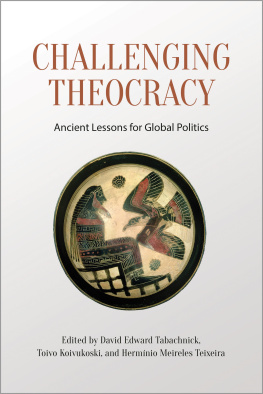

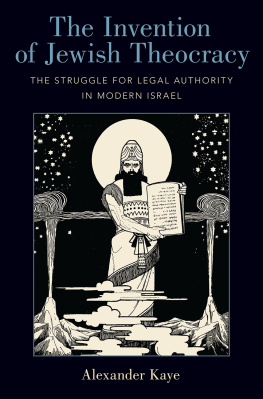
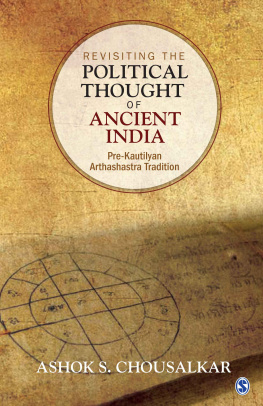
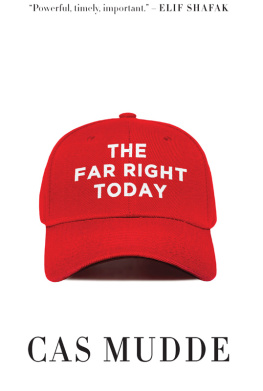
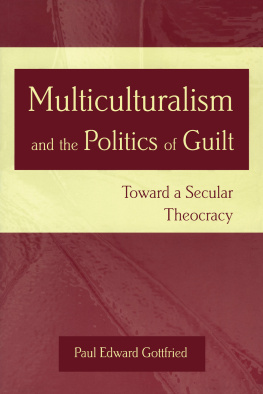

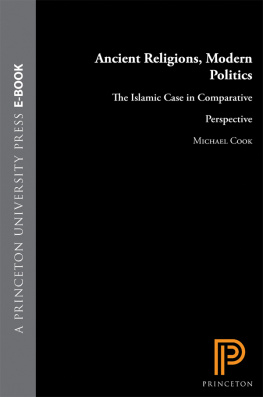
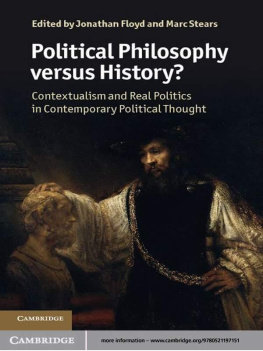

 Printed on acid-free, 100% post-consumer recycled paper with vegetable-based inks.
Printed on acid-free, 100% post-consumer recycled paper with vegetable-based inks.